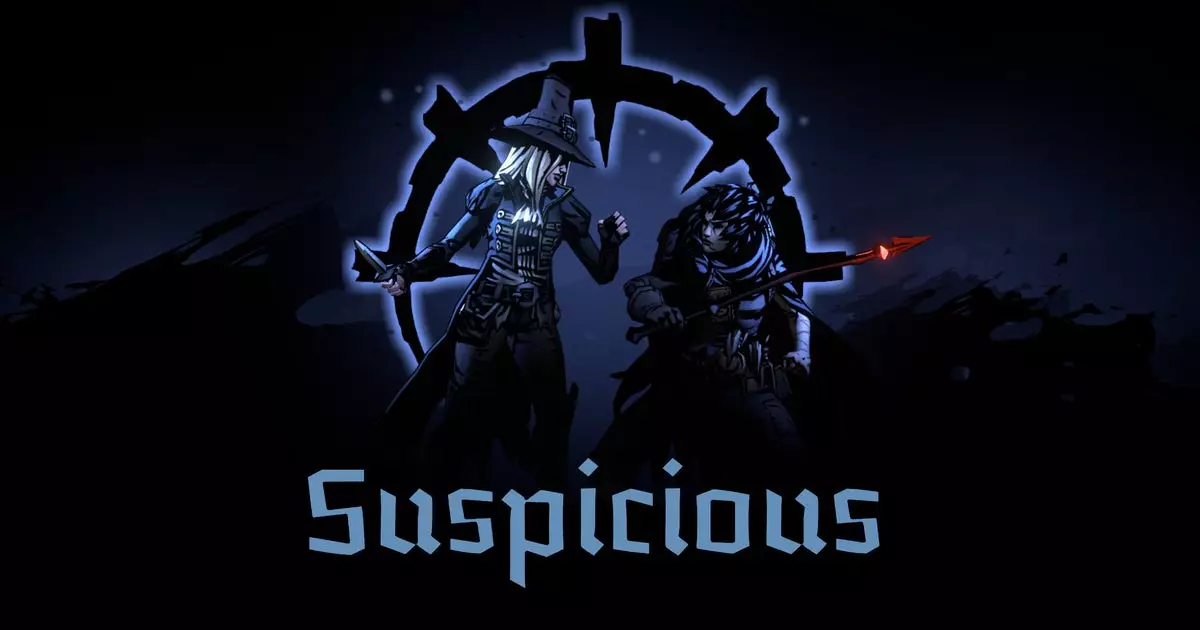The gaming landscape is ever-evolving, marked by strategic acquisitions and partnerships that shape the industry for years to come. Recently, Behaviour Interactive, the company behind the popular horror game Dead by Daylight (DBD), made headlines with the acquisition of Red Hook Studios, the creators of the critically acclaimed Darkest Dungeon. While this move has been positioned as a promising alignment of like-minded horror developers, it leaves room for skepticism regarding the long-term implications for both studios involved.
Behaviour Interactive’s history is not without blemish. The company has faced significant backlash for recent actions, including layoffs, the cancellation of prospective games, and the closure of its own Midwinter Entertainment studio. Such tumultuous circumstances raise concerns about their capacity to effectively integrate Red Hook into their operations without facing further backlash from employees or players. The juxtaposition between acquiring new talent and simultaneously downsizing raises questions about Behaviour’s priorities and corporate culture.
Indeed, Red Hook’s acquisition has a palpable connection to the horror genre, as both studios thrive in this space. However, contrasting narratives arise from Behaviour’s ambiguous definition of what it means for Red Hook to remain “a fully independent studio.” The integration of creative entities often leads to dilution of innovative ideas, prompting scrutiny on whether Red Hook can maintain its unique vision while operating under the Behaviour umbrella.
Despite the ceaseless optimism expressed from both ends, the notion of independence in this context seems questionable. Behaviour CEO Rémi Racine characterizes this move as a strategic effort to expand Behaviour’s portfolio, aiming to create a comprehensive library of horror games associated with Dead by Daylight. While it is commendable to aim for a rich array of titles, the notion of “surrounding” Red Hook with Behaviour’s influence raises flags. If Behaviour seeks to implement creative direction or funding stipulations, Red Hook might find its tactical agility considerably hampered.
Red Hook co-founder Chris Bourassa articulates excitement about collaborating with Behaviour, focusing on the potential resources that can aid in driving Darkest Dungeon to new heights. However, this optimism needs to be tempered with caution. The question remains: will Behaviour’s support translate into genuine independence for Red Hook, or will it instead constrain and direct Red Hook’s artistic vision towards Behaviour’s broader business goals?
The anticipation surrounding new developments, such as Darkest Dungeon II’s ambitious expansion, could be affected by Behaviour’s overarching strategies. Bourassa’s enthusiasm about working with Behaviour reflects an initial harmonious relationship. Yet, the realities of corporate partnerships often unveil hidden agendas that may not align with the original vision of an independent studio. This could manifest in potential compromises regarding gameplay mechanics or narrative direction, elements that players and critics value in Red Hook’s games.
Behaviour’s track record of character manipulation within Dead by Daylight emphasizes the need for caution, especially in light of trademark horror franchises. Players well-versed in the franchise might view such acquisitions as opportunistic, where beloved characters could be molded into assets supporting Behaviour’s objectives rather than serving the narratives or experiences originally intended by the creators.
Looking Ahead: A Cautious Optimism
As the dust settles from this acquisition news, the gaming community is left to ponder the potential outcomes. Both studios must navigate the sensitive interplay between collaboration and autonomy, ensuring that the creativity and innovation associated with their respective brand identities are not lost in the mix. For Red Hook, the journey ahead must be carefully charted to retain the authenticity that has garnered a devoted fanbase.
Ultimately, Behaviour Interactive’s acquisition of Red Hook Studios presents new opportunities but also weighted challenges. As players expect striking quality and creativity from both entities, it serves as a pivotal moment to observe how the synthesis of these two Canadian horror-driven studios evolves into a cohesive gaming experience that delights fans rather than merely fulfills corporate ambitions. Only time will tell if this collaboration will yield the desired outcome or leave players longing for the independence that exemplified Red Hook’s original title.

